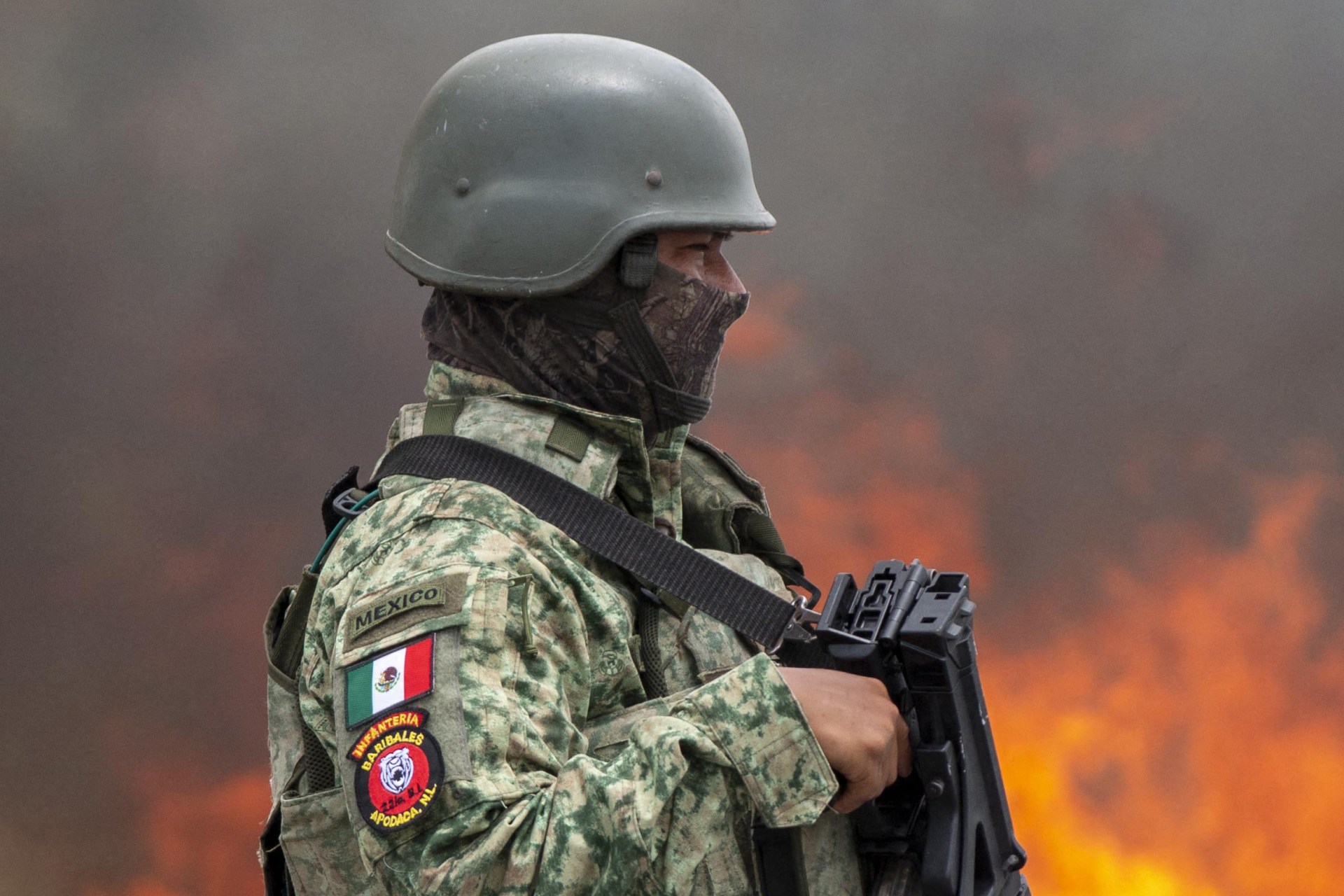Published
Updated
What are backgrounders?
Authoritative, accessible, and regularly updated Backgrounders on hundreds of foreign policy topics.
Who Makes them?
The entire CFR editorial team, with regular reviews by fellows and subject matter experts.
This publication is now archived.
What is VX?
VX is the deadliest nerve agent ever created. Known by its U.S. Army code name, it is a clear, colorless liquid with the consistency of motor oil. A fraction of a drop of VX, absorbed through the skin, can fatally disrupt the nervous system. Although a cocktail of drugs can serve as an antidote, VX acts so quickly that victims would have to be injected with the antidote almost immediately to have a chance at survival. VX is the only significant nerve agent created since World War II.
Could terrorists use VX?
It’s unlikely but possible. Synthesizing VX is complicated and extremely dangerous. It requires the use of toxic and corrosive chemicals and a sophisticated chemical laboratory. Still, the Japanese doomsday cult Aum Shinrikyo, which recruited trained chemists from Japanese universities, managed to synthesize small quantities of VX to use for assassinations. Terrorists lacking access to trained organic chemists might be more likely to steal a munition containing VX from a poorly guarded chemical weapons depot. Breachable depots may exist in Russia.
If terrorists obtained or produced a significant quantity of VX without killing themselves in the process, they might try to spread VX over a large, highly-populated area. But experts say that because of the hazards involved in handling VX, terrorists might turn first to other forms of attack.
Does al-Qaeda have VX?
There is no evidence that it does. It is also extremely unlikely that Osama bin Laden’s terrorist network has the technical capability to produce VX, although it might try to purchase or steal munitions containing VX.
Do any countries have VX?
The only countries that have admitted to having VX or a closely related agent are the United States and Russia. (The United States has destroyed about 9 percent of its VX stockpile, and Russia has promised to eliminate its own supply of a VX-like agent.) Experts say Iraq successfully weaponized VX sometime in the late 1980s. There were reports that Syria successfully produced VX or a similar agent and tested missile warheads armed with VX.
Has VX ever been used?
Although there is no conclusive evidence, some experts and an Iraqi defector say that Saddam Hussein used VX against Iranian forces in the 1980-88 Iran-Iraq War, and then again in a 1988 chemical attack on Iraqi Kurds in the town of Halabja. That massacre reportedly killed 5,000 people and created serious health problems for thousands more.
Aum Shinrikyo, which killed twelve people in a March 1995 sarin gas attack in the Tokyo subway system, also used VX injections in assassination attempts on enemies of the cult in 1994 and 1995; one person died.
When was VX created?
In the early 1950s. A British industrial scientist developed the basic compound of the V-series of nerve agents in the course of researching pesticides (the “V” stands for “venom”), but the new compound was deemed too deadly for commercial use. In the late 1950s, the British government shared the formula with the United States, which began full-scale production of VX in 1961. Between 1964 and 1968, the U.S. Department of Defense conducted a series of “live-agent tests” designed to give it practice defending ships against VX and sarin attacks.t





